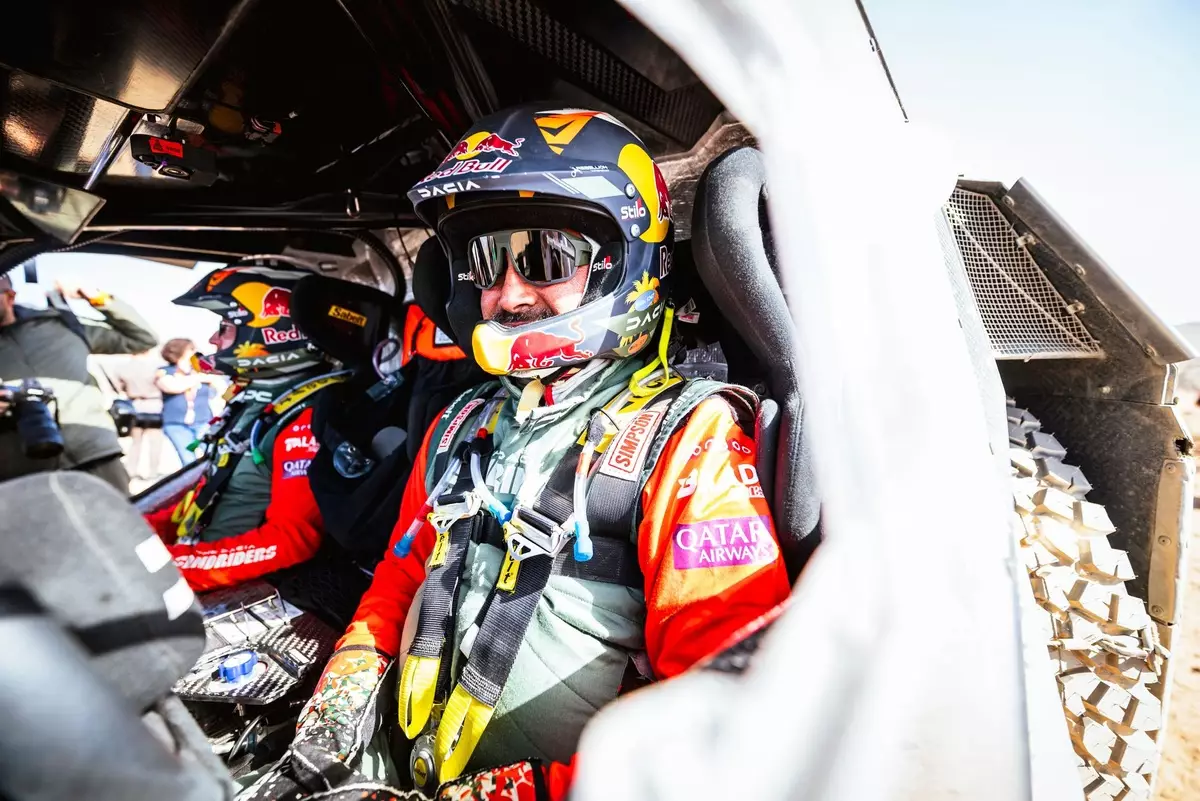The Dakar Rally, regarded as one of the most challenging motorsport events globally, constantly tests the resilience and capabilities of drivers and their machines. This year, the event has garnered attention not only for its grueling stages but also for the controversies arising from the FIA’s decisions concerning driver safety and race regulations. Nasser Al-Attiyah, a seasoned Dacia driver and a five-time winner of the rally, has raised pertinent questions regarding the FIA’s handling of safety protocols, particularly concerning rival Carlos Sainz Sr., who was barred from continuing the race.
The FIA’s recent decision to prevent Sainz Sr. from completing the 2025 Dakar Rally has drawn criticism and prompted discussions about the fairness of regulations during high-stakes events. Following separate incidents that led to damage to the roll cages of both Sainz and Al-Attiyah’s teammate, Sebastien Loeb, the governing body expressed concerns about the safety of these teams, declaring they could not ensure safe conditions should similar incidents reoccur. One key point raised by Al-Attiyah was the vagueness of the rules that led to Sainz’s exclusion. He argued that the ability to make repairs is fundamental in off-road racing and that penalizing teams for ensuring their equipment is in top condition counters the very spirit of motorsport.
Al-Attiyah expressed his frustration, pointing out the absurdity of a situation where his fellow competitors—famed names like Sainz and Loeb—are sidelined while he aims to keep the competition alive. This sentiment resonates with many fans and analysts who believe that a more flexible approach regarding repairs would enhance, rather than detract from, the competition’s integrity.
Another layer of contention surrounds the penalties imposed during the race. Al-Attiyah found himself incensed after receiving a 10-minute penalty for losing a spare wheel during a critical stage. This unexpected sanction proved detrimental, costing him a victory by a mere second and igniting a debate over the consistency of race penalties. His subsequent intention to address FIA president Mohammed ben Sulayem reflects a broader concern within the motorsport community about fairness and consistency in rule enforcement. Al-Attiyah noted that the penalty felt particularly unjust, as the circumstances surrounding the tire’s displacement were beyond his immediate control. His push for an appeal emphasizes a shared desire among competitors for transparency and fairness in the application of race rules.
The dynamics of racing often induce mistakes, and the pressures of competition can lead to unforeseeable challenges. Al-Attiyah understands this all too well and has articulated the need for balanced penalties that reflect the complexities of off-road racing rather than hastily penalizing drivers without context.
Currently sitting fourth in the overall standings, Al-Attiyah faces a robust challenge with a 30-minute deficit to the leading Toyota rival, Henk Lategan. However, despite the hurdles, the veteran driver remains optimistic about his chances. His confidence in overcoming the challenges posed by both competitors and regulations stands as a testament to his experience in navigating the intricate landscape of the Dakar Rally.
Al-Attiyah believes that the remaining stages present opportunities for strategic racing, where calculated risks could either yield significant gains or heartbreaking losses. With only a narrow margin separating him from the other top competitors, every hour on the course could shift the standings dramatically. Though the pathway to a sixth victory is fraught with obstacles, his unwavering determination and tactical approach might yet enable him to close the gap on the leaders and inch him closer to the elusive eighth win record held by another rally legend, Stéphane Peterhansel.
As the Dakar Rally progresses, the complexities of racing regulations and safety measures will remain a focal point. Al-Attiyah’s experiences highlight a larger conversation about how motorsports should evolve to protect drivers without stifling the essence of competition. The events’ governing bodies must balance safety and the spirit of the race, ensuring that decisions made enhance the spectacle of motorsport rather than diminish it. As the rally unfolds, drivers, fans, and stakeholders alike will be watching closely to see how these dynamics play out in the world’s most demanding race.


Leave a Reply